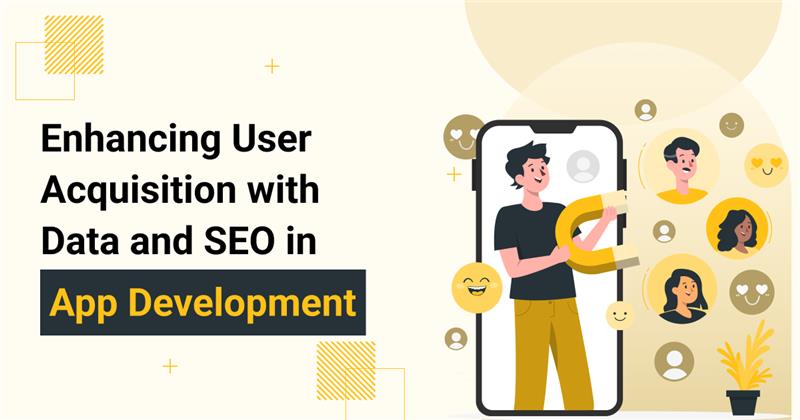How Artificial Intelligence is Reshaping Our World
Do you remember when artificial intelligence (AI) was just a concept in science fiction? Today, AI is all around us, quietly influencing our lives. It powers the algorithms that shape our social media and the voice assistants that answer our questions. We’re witnessing an AI revolution, but are we truly prepared for its profound impact?
AI isn’t just a tech advancement; it’s a force that’s already transforming industries, jobs, and our understanding of humanity. This isn’t just a glimpse into the future—it’s an exploration of how AI is changing our world right now. Get ready to learn how AI is revolutionizing everything you thought you knew.
AI’s Impact on Industries
Artificial intelligence is not just an idea in research labs. It is changing how different industries work by making things more efficient, encouraging new ideas, and sometimes creating completely new ways to do business.
-
Healthcare
AI is set to transform healthcare in many ways, including how diseases are diagnosed and treated and how patient care is provided.
Diagnosis and Treatment. AI-powered tools are analyzing medical images with remarkable accuracy, identifying early signs of cancer, predicting patient outcomes, and even tailoring personalized treatment plans. Additionally, AI algorithms are accelerating drug discovery, leading to the development of AI solutions that could potentially uncover novel treatments for diseases that were once considered incurable. These AI solutions are not only speeding up the drug development process but also opening up new avenues for personalized medicine, where treatments can be tailored to an individual’s unique genetic makeup and health conditions.
Robotic Surgery. AI-guided surgical robots help surgeons perform complex surgeries with more precision, less blood loss, and faster recovery times for patients.
-
Finance
The financial sector is using AI to manage risks, automate tasks, and improve customer experiences.
Algorithmic Trading. AI-powered trading algorithms are making trades much faster than humans can, affecting market behavior and needing strict regulation.
Customer Service. Financial institutions are using chatbots and virtual assistants to handle simple questions, give personalized financial advice, and let human agents work on more complex issues.
-
Manufacturing
AI is bringing a new age of “smart manufacturing.” Machines are not just doing tasks automatically but also learning and improving processes.
Automation and Robotics. Machines are not just doing tasks automatically but also learning and improving processes. Experiment tracking tools aid in refining these processes by enabling engineers to document, test, and optimize AI-driven machinery, ensuring continuous efficiency gains.
Predictive Maintenance. AI systems use data from machine sensors to predict problems before they happen, reducing downtime and expensive repairs.
-
Transportation
The transportation industry is about to change in a big way, thanks to AI.
Self-Driving Cars. These cars can drive themselves, which could change how we travel, make roads safer, and help people who have trouble getting around. There are still some challenges with rules and technology, but the progress is clear.
Logistics and Supply Chain. AI is making delivery routes better, predicting changes in demand, and managing inventory more efficiently. This means faster, more efficient, and cheaper supply chains.
-
Other Industries
Education. AI helps create personalized learning experiences by adjusting educational content to fit each student’s needs.
Retail. AI-powered recommendation engines boost sales by suggesting products based on what users like and how they behave.
Agriculture. AI and data analytics guide precision farming, which improves crop yields, reduces resource waste, and supports sustainable farming practices.
AI’s impact on various industries is extensive and rapidly evolving. These examples show just a small part of how AI is changing our work, lives, and interactions with the world.
AI’s Impact on Society
While AI is clearly changing industries, its effects go much further. It touches every part of our society, changing how we work, live, and interact with the world.
-
Workforce Transformation
The rise of AI is causing a seismic shift in the workforce, sparking both excitement and apprehension.
Job Displacement. It’s impossible to ignore the growing concern that AI automation could displace workers in certain sectors, particularly those involving repetitive tasks. However, history has shown that technological advancements often create new jobs even as they render others obsolete.
Job Creation. The AI revolution is spawning entirely new career paths. As AI systems become more sophisticated, the demand for AI developers, data scientists, machine learning engineers, and ethicists is skyrocketing. Additionally, job seekers in these fields can now prepare more effectively through tools like an AI Mock Interview, which simulates real-world interview scenarios to help candidates improve their responses and performance.
-
Ethics and Bias
As AI systems become more integrated into decision-making processes, ensuring fairness and mitigating biases becomes paramount.
The Importance of Fairness. AI algorithms, trained on historical data, can inadvertently perpetuate and amplify existing biases, leading to discriminatory outcomes. Addressing these biases requires diverse and inclusive teams of AI developers who are vigilant in their pursuit of fairness. Additionally, developers need an in-depth understanding of AI life cycle stages to help ensure biases are identified and corrected throughout the development process, from data collection to model deployment.
Accountability and Transparency. As AI takes on more responsibility, establishing clear guidelines and regulations for its development and deployment becomes essential. Transparency in AI decision-making is crucial to ensure accountability and build trust in these systems.
-
Everyday Life
AI is quietly enhancing our daily lives, often in ways we barely notice.
Smart Homes and Assistants. Voice-activated assistants like Alexa and Google Home, along with smart appliances, are becoming commonplace, automating tasks, providing information, and even offering companionship.
Entertainment and Media. AI-powered recommendation engines suggest movies, music, and articles tailored to our tastes, while AI-generated content is pushing the boundaries of creativity. Immersive experiences like virtual and augmented reality are becoming more accessible and engaging, thanks to AI advancements.
The impact of AI on society is a complex and evolving landscape. While it promises to improve our lives in countless ways, it also raises important questions about ethics, equity, and the future of work. Navigating this new era requires ongoing dialogue, collaboration, and a commitment to harnessing AI’s power for the betterment of humanity.
Challenges and Future Outlook
As with any transformative technology, the rise of AI brings forth a host of challenges that demand careful consideration and proactive solutions.
-
Technical Challenges
Data Privacy and Security. The vast amounts of data that fuel AI systems are a double-edged sword. While they enable AI’s remarkable capabilities, they also pose significant privacy and security risks. Protecting sensitive personal information from breaches and misuse is a paramount concern in an AI-driven world. Striking the right balance between innovation and safeguarding privacy will be an ongoing challenge.
Explainability. Many AI algorithms, particularly deep learning models, are often referred to as “black boxes” due to their inherent opacity. Their decision-making processes can be difficult to interpret, raising concerns about accountability and trust. Ensuring that AI systems can explain their rationale in a transparent and understandable manner is crucial, especially in high-stakes domains like healthcare and finance.
-
Societal Challenges
Economic Inequality. The automation potential of AI raises concerns about job displacement and the widening gap between the haves and have-nots. As AI-powered technologies become more prevalent, it’s imperative to address the potential for economic disparities and ensure that the benefits of AI are distributed equitably.
Global Cooperation. AI is a global phenomenon, and its development and governance require international collaboration. Establishing common ethical standards, regulatory frameworks, and best practices is crucial to prevent a fragmented and potentially harmful AI landscape.
-
The Road Ahead
Despite the challenges, the potential of AI to drive positive change is undeniable.
AI as a Tool for Good. AI has the potential to be a powerful tool for addressing some of the world’s most pressing challenges. From climate modeling and resource optimization to disease diagnosis and drug discovery, AI can accelerate solutions that benefit humanity and the planet.
Lifelong Learning. In an AI-driven world, adaptability and continuous learning are paramount. As AI reshapes the job market, individuals must be prepared to upskill and reskill throughout their careers to remain relevant and thrive. Education systems need to evolve to equip future generations with the skills needed to navigate an AI-powered future.
The trajectory of AI is not predetermined. It’s a path we are actively shaping through our choices, investments, and policies. By acknowledging and addressing the challenges while embracing the opportunities, we can steer AI towards a future that benefits all of humanity.
Conclusion
Artificial intelligence is here, and it’s reshaping everything from how we diagnose diseases to how we order groceries.
While it promises unprecedented advancements, it also poses challenges around privacy, bias, and economic inequality. The AI revolution is a journey we’re all on together, and its destination depends on the choices we make today.
Stay informed about AI’s rapid evolution, engage in conversations about its ethical implications, and embrace the opportunities it presents. But most importantly, share your thoughts below. What excites you most about AI’s potential? What concerns you? Let’s navigate this transformative era together.




